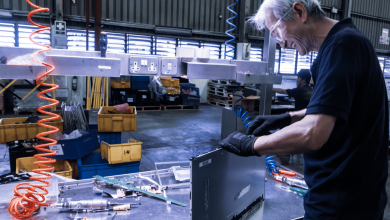
With AI-driven products and services promising the moon these days, a “not guilty” fraud verdict for a leading intelligent software developer is certainly interesting news.
Britain’s extradited Mike Lynch has been cleared of the fraud charges he faced in the US, over the $11 billion sale of his Autonomy software firm to Hewlett-Packard in 2011.
After facing legal uncertainty for around 13 years after the acquisition, we await whether Lynch will return to the AI software fray, just when the market is really getting big, albeit when the uncertainty over what AI can achieve commercially is still there.
A San Francisco jury found Lynch not guilty on all counts, after he was accused of inflating the value of Autonomy, ahead of the sale to HP (before the company later split into two, creating HP Inc and HPE.
Lynch had faced over 20 years in prison if convicted, and had denied all the charges. He maintained he had focused on technology, not accountancy, and had distanced himself from other Autonomy executives. Autonomy’s former chief financial officer had previously been successfully prosecuted for fraud in the US in 2018, and got five years in prison.
Lynch said: "I am elated with the verdict and grateful to the jury for their attention to the facts over the last ten weeks.
"I’m looking forward to returning to the UK and getting back to what I love most: my family and innovating in my field."
Cambridge University graduate Lynch co-founded Autonomy in 1996 out of a specialist software research group called Cambridge Neurodynamics.
The company developed software that could extract key information from unstructured data like emails, phone calls, and video. When this author met Lynch for a briefing at the end of the nineties, while working for Computer Weekly, what was being promised seemed relatively straightforward. But, like may straightforward ideas in technology, it’s always harder to actually do well.
That said, when HP later paid $11 billion for Autonomy in 2011, many in the industry thought we had returned to the bad old days of the pre dot.com bubble burst, when web companies had clearly been overvalued before the eventual carnage.
While Lynch made £500m from the sale, within a year HP wrote down the value of Autonomy by a whopping $8.8 billion, after failing to fully commercialise Autonomy for its global business, or properly integrate the technology with existing commercial products.
US prosecutors eventually brought charges against Lynch in 2018, after accusing him of inflating the value of the firm using backdated agreements to mislead about the company's sales, concealing the firm's loss-making business reselling hardware, and intimidating or paying off people who had raised concerns.
Lynch's lawyers said: “This verdict closes the book on a relentless 13-year effort to pin HP's well-documented ineptitude on Dr Lynch. "Thankfully, the truth has finally prevailed."


